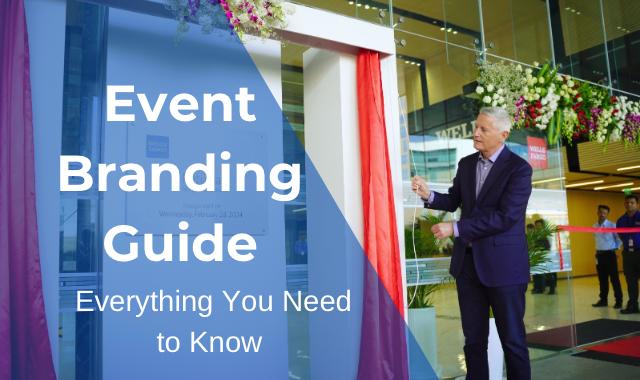
Measuring ROI and Success Metrics for Corporate Events
Corporate events are one of the most potential and highly recommended business strategies for brand promotion, networking and lead generation.
Through these events, businesses can understand their customers and market demands and enhance their business plans for success and solid growth.
How can you measure the success of your event, and what are the guiding factors? In measuring event success and corporate events, ROI is important for event management companies. In this blog, we will discuss corporate event metrics and event performance metrics.
After the event has concluded, every business must check these Key Performance Indicators ( KPIs).
Corporate ROI and Event Success
Ticket Sale
Event planners tend to focus on this KPI the most. The number of tickets sold indicates the interest in your event and how much revenue you generate.
Track the total number of ticket registrations for all future events you plan. It will help you measure your events’ sales performance and analyze why some months performed better than others.
You can compare how many tickets you sold for an event to previous events. This gap can show which events are most popular with your audience and the success of your outreach campaign.
Event Check-Ins
Even with our best efforts, a certain percentage will not actually check in on the day of an event. It is known as “attrition.” As an event planner, it’s important to compare the number of registrants with the number of attendees. That is because people may have changed their minds, had family emergencies, or made last-minute changes to plans.
You can use this information to determine why some people didn’t attend your event despite promising to.
Why Do More People Register than Attend
Attendees and Sponsors Satisfaction
Corporate event planners must know if the attendees are satisfied and whether they would recommend their event to friends. To do so, they can share a simple questionnaire and get the answer. Sometimes the event planner may have exceeded their goal for attendees or sponsors. But did they enjoy themselves?
Satisfaction is the unicorn that corporate event planners must check while looking at the metrics.
The satisfaction of the attendees determines success metrics for corporate events. But how do you gauge satisfaction? Professional event planners often send surveys to their audiences before, during, and after an event. Event metrics help them understand what they are interested in. The post-event survey is a good way to gauge how your audience felt about the event. Use a simple survey to gauge the satisfaction level of the audience.
The NPS survey is a good tool for measuring attendee satisfaction.
Net Promoter Score (Net Promoter Score) is a tool used by event planners to measure customer satisfaction and collect feedback from attendees. It measures the likelihood that a customer will recommend an event to another person.
The first question can be followed by a second question that identifies pain points or success, such as “Why did you select this ranking?”.
Promoters: Surveyors between 9 and 10 Passives: Surveyors between 7 and 8 Detractors: Surveyors that answer between 0 to 6
Promoters are loyal clients who will share your events with their friends, colleagues and family. Passives can either become promoters or switch to their competitors. Detractors are unhappy clients who can damage your brand through negative reviews.
Add up the responses in each category and subtract the percentages of the detractors and promoters to calculate the NPS. This score will show the likelihood that your attendees will recommend your event to a friend.
HubSpot’s Ultimate Guide to NPS is a great resource for learning more about NPS.
Customer Loyalty
Many attended and enjoyed your event, but would they come back again? Understanding and building loyalty are crucial KPIs for any event planner. The best way to build brand loyalty is to host events. You can engage people on a personal and emotional level.
When registration is completed, you should check how many people registered also attended previous events. Calculate how many of the people who checked in are returning attendees.
A large number of loyal clients is a good indication of the success of your events and can generate more revenue for your company. People are more likely to identify with brands when they have a personal experience with them. Many studies support that more than 80% of attendees report having a positive opinion of a company product or brand after being promoted at a corporate event.
Nearly 70% of users tend to become regular customers as a result of an experiential marketing event.
When evaluating how your events affect the perception of your brand by your existing customers, customer loyalty is a key metric.
Social Media Engagement
Customer loyalty is also a reflection of how involved they are before, during and after an event. Social media can be a good indicator of engagement. How many people used your hashtag at the event? How many people posted images or videos of your event to social media? How many people have tagged you in an Instagram picture? Telling people to use your hashtag is not enough. Give them something to post about.
Use tools like Hubspot and Sprout Social to measure social media engagement. These will help you analyze data and campaign success. You can measure engagement by looking at the number and type of shares, hashtags, likes, and comments you receive on your event posts.
Be sure to create a unique, simple, and easy-to-remember hashtag. You can also reward customers with social media contests or by displaying live tweets during your event. Be sure to have a diverse social media outreach that is easy to measure and spreads across multiple channels. If you can engage more people, you will reach more people.
Lead Acquiring and Follow-up Activity
The ROI of corporate events is measured by the number of leads acquired and the follow-up response. You can also use the Event ROI calculator available online for this step. If you want to increase sales, brand awareness, or thought leadership after the event, you should see how attendees respond.
You can also measure how many referrals and new customers you got from the event. Also, how many people signed up for your programs, services or product demos after attending? Look at how many people are still using the hashtag one month after the event.
Revenue and Expenses
SHARE ON



